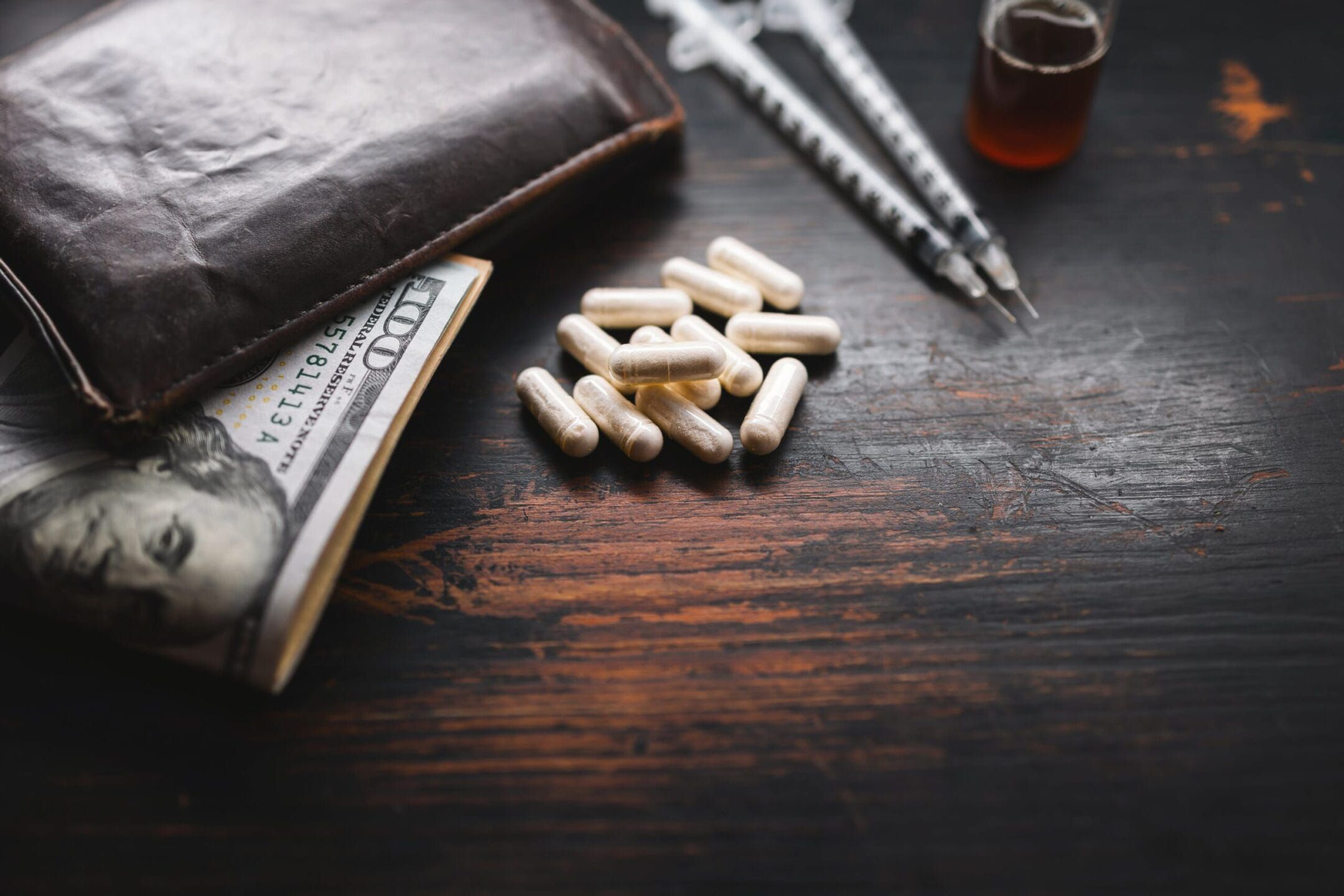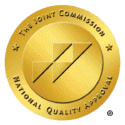
Is LSD Addictive?
Common questions about LSD include how does it work, can it cause long-term harm, and is LSD addictive?
What Is LSD?
Lysergic acid diethylamide, which is commonly referred to as LSD, is a hallucinogenic substance that is derived from a poisonous fungus called ergot.
It was first synthesized by Swiss chemist Albert Hoffman in the late 1930s as part of an effort to develop a new drug that could stimulate the circulatory and respiratory system.
When the substance didn’t show promise as a stimulant, Hoffman turned his attention elsewhere. He didn’t discover its psychedelic properties until 1943 – about five years after initially synthesizing it – when he began to study the drug again and accidentally absorbed a small amount.
How Does LSD Work?
When a person takes LSD, molecules of the drug bind to certain serotonin and dopamine receptors in their brain. What happens after these attachments occur? How, exactly, does LSD cause such powerful effects?
These questions have long befuddled researchers, but developments over the previous decade have expanded their understanding of how LSD works.
Recent studies suggest that LSD’s effects are related to the drug’s ability to promote increased activity in some areas of the brain, suppress activity in other areas, and alter communication among various regions.
In 2016, the journal Proceedings of the National Academy of Sciences (PNAS) published a study that incorporated three advanced neuroimaging techniques to explore how LSD impacts the brain. Results from this research effort included:
- Visual hallucinations seem to result from increased cerebral blood flow (CBF) in the visual cortex, decreased alpha power in the visual cortex, and “a greatly expanded primary visual cortex (V1) functional connectivity profile.”
- The sense of ego dissolution that some LSD users experience appears to be related to decreased connectivity between two brain areas, the retrosplenial cortex (RSC) and the parahippocampus.
In 2017, a team from the University of North Carolina (UNC) School of Medicine captured the first crystallographic images of an LSD molecule attached to a serotonin receptor. These images revealed that parts of the receptors fold over the LSD molecules like a lid, essentially locking them in place.
Though this discovery didn’t yield additional insights into how LSD produces its effects, it did help explain why those effects last as long as they do.
“LSD takes a long time to get onto the receptor, and then once it’s on, it doesn’t come off,” said Bryan L. Roth, MD, PhD, who led the UNC research team. “And the reason is this lid.”
Effects of LSD
The effects that you may feel when you take LSD can be affected by a range of factors, including the quality of the drug, how much you take, and the circumstances in which you take it.
Generally speaking, though, common effects of LSD include:
- Elevated mood
- Enhanced sense of empathy and connection
- Distorted perception of space and time
- Enhanced sensitivity to light, sound, and touch
- Auditory and/or visual hallucinations
Of course, even if you take LSD with the goal of experiencing an enjoyable high, there are no guarantees that the results will be positive.
If you have what’s commonly referred to as a “bad trip,” the psychological impact can include intense anxiety, profound confusion, panic, and paranoia.
Also, while most people focus on the drug’s impact on thoughts and perceptions, it can also cause physical effects, including:
- Dilated (expanded) pupils
- Accelerated heart rate
- Increase in body temperature
- Rapid breathing
- Excessive perspiration
- Dry mouth
- Headache
- Nausea and vomiting
How Long Do LSD Effects Last?
As noted previously in this post, the way LSD locks onto neural receptors in the brain means that people who take the drug are likely to experience effects for an extended period.
When you ingest LSD, it can take 30 minutes to two hours before you begin to feel any effects. Once these effects start to become apparent, they may last for up to 12 hours.
The 12-hour timeline refers to the most intense effects, such as hallucinations, altered perception, and disorientation. Some people also report lingering aftereffects such as improved mood, which continued for several days after they took LSD.
Health Risks Associated With Frequent LSD Use
Using LSD even once can put you at risk of both physical and psychological distress. If you use the drug frequently, you may also be in danger of health risks such as:
- Hallucinogen persisting perception disorder (HPPD) – Previously known as having flashbacks, this condition can cause you to re-experience a variety of LSD’s effects long after you’ve stopped using the drug.
- Serotonin syndrome – This serious condition is caused by having an overabundance of serotonin in your system. Symptoms can range from nervousness and nausea to muscle spasms and delirium. Serotonin syndrome is a treatable condition, but if a person doesn’t get the care they need, the results could include breathing problems, kidney failure, seizure and even death.
- Addiction – Is LSD addictive? Yes, it can be. Though LSD addiction is quite rare, it is possible to become dependent on this drug.
What Are the Signs and Symptoms of LSD Addiction?
The clinical term for LSD addiction is other hallucinogen use disorder. The “other” in this term refers to hallucinogenic substances that aren’t phencyclidine (PHP), which has a separate entry in the fifth edition of the Diagnostic and Statistical Manual of Mental Disorders (DSM-5).
Symptoms of LSD addiction can include:
- Using LSD in larger amounts or for a longer period of time than intended
- Having a persistent desire to stop using LSD, but being unable to quit
- Spending considerable amounts of time acquiring and using LSD
- Experiencing intense urges to use LSD
- Failing to meet your responsibilities at home, in school, or at work as a result of your LSD use
- Continuing to use LSD even after incurring some type of harm, such as having health problems or losing your job. This also includes consequences like being arrested due to your prior use.
- Developing tolerance, which means that you need to use larger or more potent doses to achieve the desired effects
- Using LSD in circumstances that are clearly hazardous, such as while driving
- Reducing or ending your participation in important activities as a result of your LSD use
What Causes LSD Addiction?
A common follow-up to the question, “Is LSD addictive?” is, “What causes LSD addiction?”
As with all other types of chemical dependence, there is no single reason why people become addicted to LSD. Instead, experts have identified a variety of risk factors, including:
- Prior use of MDMA (ecstasy) or other hallucinogens
- Being addicted to alcohol, cannabis, or nicotine
- Developing major depressive disorder or antisocial personality disorder
- Having certain genetic variations
Regardless of how or why you become addicted to LSD, it is important to remember that this is a treatable condition. With proper care and a concerted effort on your part, you can overcome the compulsion to use LSD, and begin to build a healthier life for yourself in recovery.
FAQ About LSD Abuse
Can LSD cause long-term harm?
Yes. While not all users experience ongoing issues, LSD can lead to persistent problems such as hallucinogen persisting perception disorder (HPPD), chronic anxiety, and other mood disturbances. These effects can last weeks, months, or even become permanent in some cases.
How long do LSD effects last?
The most intense effects can last up to 12 hours, though aftereffects may continue for days. These lingering effects can include mood changes, disrupted sleep, and unusual sensory perceptions.
Can LSD use be treated?
Yes. With professional treatment that may include detox, counseling, and relapse prevention planning, individuals can stop using LSD and address any co-occurring mental health concerns.
Begin Treatment for LSD Addiction at Sanctuary Treatment Center
Sanctuary Treatment Center offers a full continuum of customized services for adults who have become addicted to LSD and other substances.
Treatment options at our rehab center in Los Angeles, CA, include detoxification (detox), residential care, and multiple outpatient programs. Our team of experienced treatment professionals will work with you to understand the full scope of your needs. They will then select the programs and services that will best prepare you for successful, long-term recovery. To learn more or to schedule a free consultation, please visit our Contact page or call us today.
Sources
- Proceedings of the National Academy of Sciences (PNAS). (2016). LSD modulates the brain’s functional connectivity. Retrieved from https://www.pnas.org/doi/full/10.1073/pnas.1518377113
- University of North Carolina School of Medicine. (2017). Crystal structure of LSD bound to a serotonin receptor. Retrieved from https://www.med.unc.edu/pharm/this-is-lsd-attached-to-a-brain-cell-serotonin-receptor/
Published: 8/8/2025


